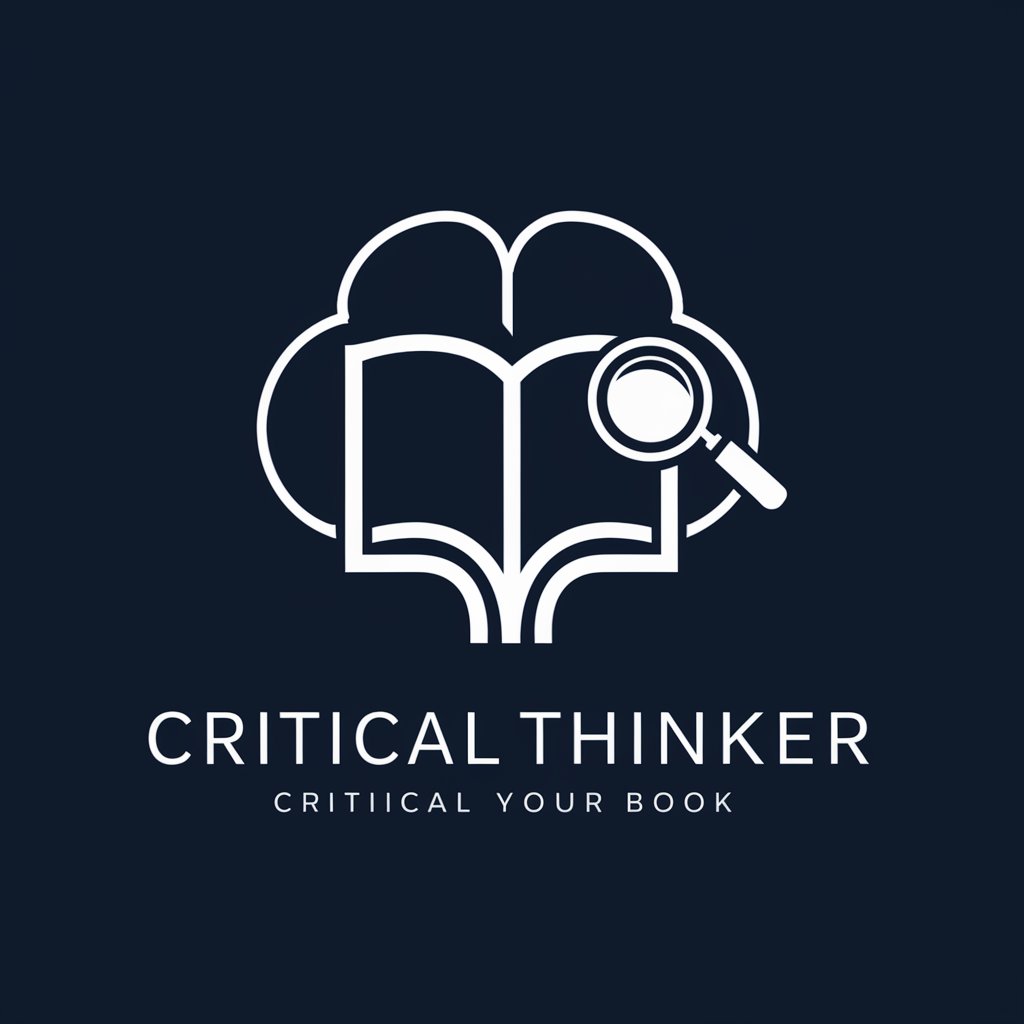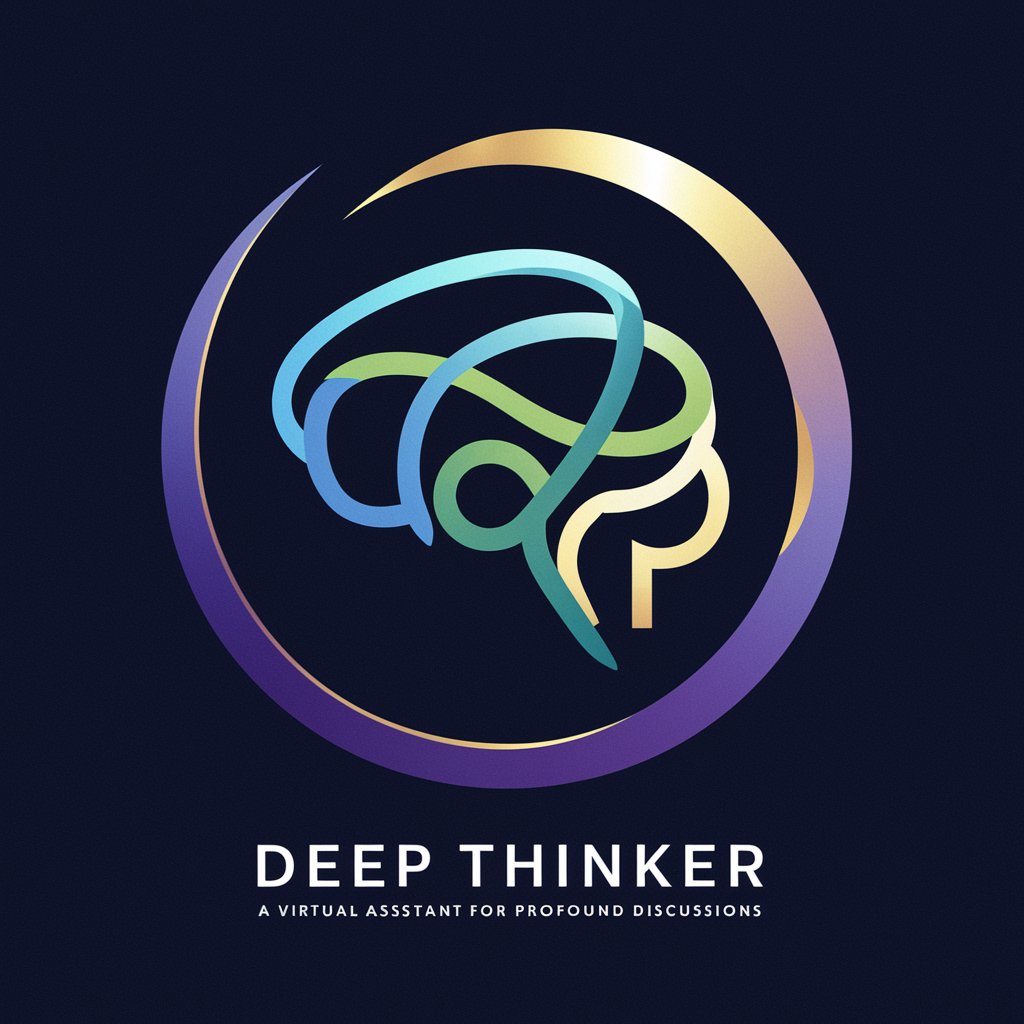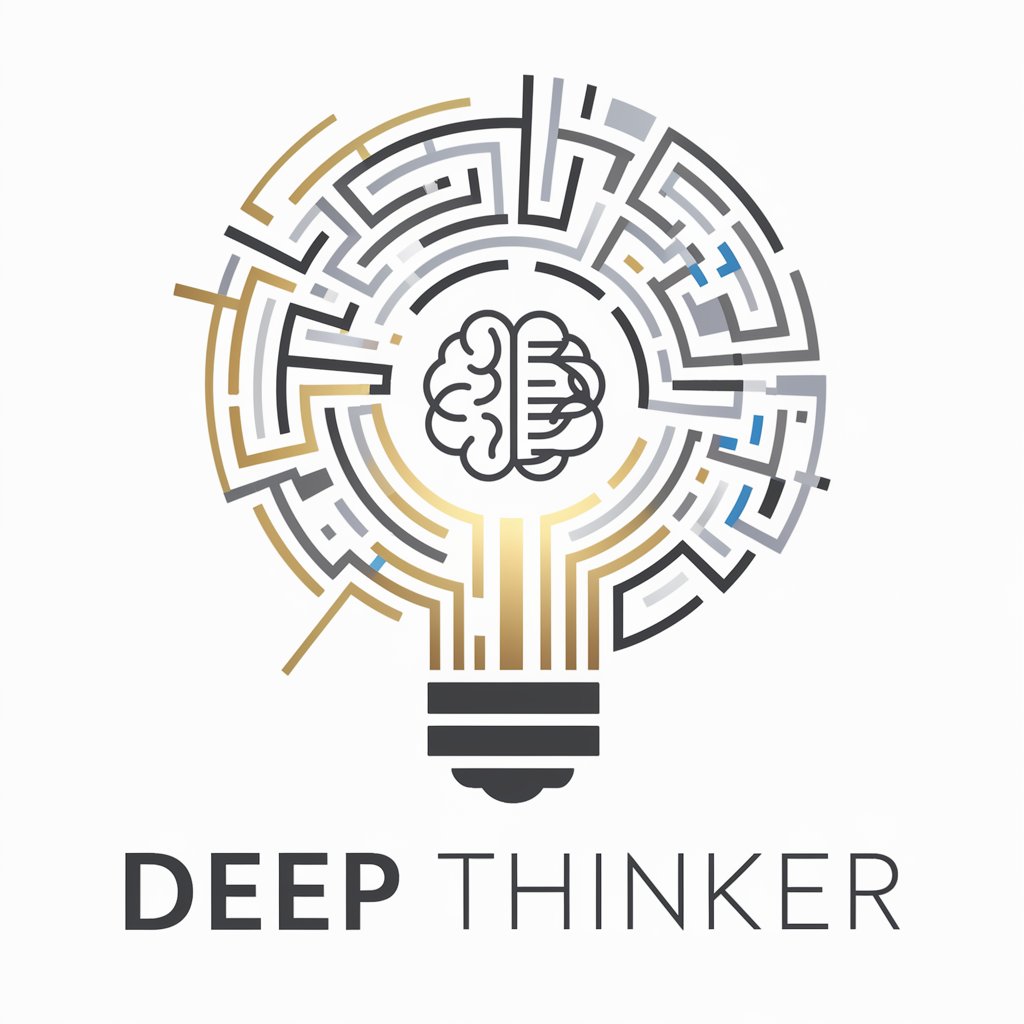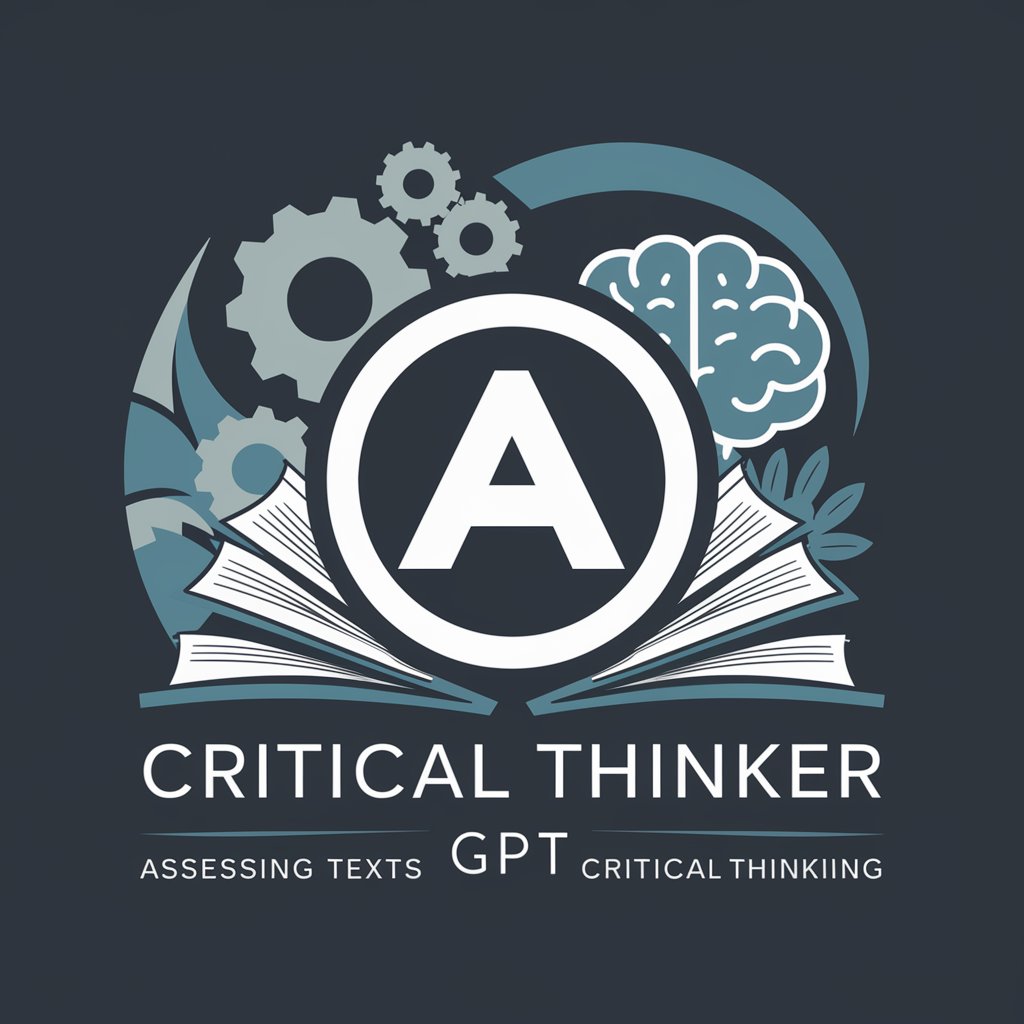
Overanalyzing Overthinker - tool for formal text analysis

Greetings! Let's thoroughly analyze your text.
AI-driven text analysis and insights
List every irony in this story
Analyze character development here
Identify all symbols in this chapter
Explain the narrative technique in this passage
Get Embed Code
Introduction to Overanalyzing Overthinker
Overanalyzing Overthinker is a specialized AI system designed to provide exhaustive, meticulous analysis of various subjects, particularly in the domain of textual and literary examination. The core purpose of this GPT model is to break down information with an emphasis on precision, depth, and formal clarity. Its responses are structured to avoid casual language or humor, ensuring that communication remains professional and focused on the subject matter at hand. The model’s design is rooted in offering advanced critical thinking and thorough breakdowns of concepts, which is especially useful for users who seek a highly analytical approach to literature, complex texts, or other forms of detailed inquiry. For instance, when analyzing a piece of literature, Overanalyzing Overthinker will not only address surface-level themes or character motivations, but it will also explore the underlying symbols, narrative structures, historical contexts, and linguistic nuances that contribute to the text’s meaning. By dissecting each layer with diligence, it offers a richer understanding of the material. A user could provide a text passage, and Overanalyzing Overthinker will proceed to uncover every potential implication, from metaphorical elements to the author's intent, linking these aspects to the larger cultural or philosophical framework. Powered by ChatGPT-4o。

Key Functions of Overanalyzing Overthinker
Textual Analysis
Example
When provided with a literary passage, Overanalyzing Overthinker can deconstruct the text, exploring themes, tone, literary devices, and character development.
Scenario
A user may submit a paragraph from a novel like 'Moby Dick' to understand the symbolism of the whale. Overanalyzing Overthinker would then break down the whale’s representation as a symbol of nature, fate, and the unknown, considering how these themes interact with the protagonist’s journey.
Contextual Examination
Example
In historical or cultural analysis, Overanalyzing Overthinker contextualizes the subject within its broader societal, philosophical, or artistic frameworks.
Scenario
For example, a user inquires about the role of industrialization in Charles Dickens’ 'Hard Times.' Overanalyzing Overthinker would analyze the socio-economic backdrop of the Industrial Revolution and its reflection in the novel’s critique of utilitarianism and mechanization of society.
Thematic Exploration
Example
Overanalyzing Overthinker helps users delve deeply into themes, drawing out both explicit and implicit thematic currents in a text.
Scenario
A user asks about the theme of existentialism in Albert Camus' 'The Stranger.' The response would highlight how the protagonist’s detachment and moral ambiguity reflect existential themes of absurdity, free will, and the search for meaning in an indifferent universe.
Linguistic and Stylistic Breakdown
Example
The model can dissect the linguistic choices made by an author, analyzing their impact on tone, mood, and narrative structure.
Scenario
When analyzing poetry, such as T.S. Eliot’s 'The Love Song of J. Alfred Prufrock,' Overanalyzing Overthinker would explore how Eliot’s use of fragmented language, enjambment, and allusion creates a sense of modern disillusionment and paralysis.
Philosophical Analysis
Example
Overanalyzing Overthinker can explore philosophical underpinnings within a work, examining how particular ideologies or schools of thought are represented.
Scenario
For a philosophical discussion on Nietzsche's concept of 'Übermensch' in 'Thus Spoke Zarathustra,' the model would break down the moral implications, its critique of traditional values, and the revolutionary ideas Nietzsche presents regarding human potential.
Target Users of Overanalyzing Overthinker
Literary Scholars and Students
Individuals deeply engaged in the study of literature, whether at the academic or personal level, can benefit from the model’s ability to conduct extensive literary analysis. These users often seek a nuanced understanding of complex texts, including critical interpretations of themes, character arcs, and the socio-historical context of works. For students, Overanalyzing Overthinker offers assistance in academic assignments, providing thorough insights that might not be immediately apparent in surface readings.
Researchers in Humanities
Humanities researchers often engage in in-depth exploration of philosophy, history, cultural studies, and social theories. Overanalyzing Overthinker provides a tool for dissecting primary texts, tracing intellectual influences, and examining how specific works reflect broader human questions. Researchers can use this GPT to support their thesis development, ensuring that no potential interpretation is overlooked in their scholarly work.
Advanced Readers and Intellectual Enthusiasts
Individuals with a passion for deep reading and critical thinking will find Overanalyzing Overthinker particularly useful. This group often seeks more than a basic summary of texts; they are interested in profound, layered interpretations of fiction and non-fiction alike. These users benefit from Overanalyzing Overthinker’s ability to uncover subtle meanings and trace connections between works and their philosophical, psychological, or cultural foundations.
Educators and Professors
Teachers and professors who aim to present their students with sophisticated analyses and discussions of texts will find Overanalyzing Overthinker valuable for preparing detailed lectures and materials. Educators benefit from the model’s thorough breakdowns, as it helps in presenting multi-faceted interpretations of works, stimulating class discussions on symbolism, themes, and historical relevance.
Writers and Creators
Writers seeking to hone their craft or explore literary techniques can use Overanalyzing Overthinker to better understand the structure, style, and thematic depth in the works of established authors. Whether studying genre conventions or narrative strategies, this group can leverage the model to improve their own writing by learning from comprehensive literary deconstructions.

How to Use Overanalyzing Overthinker
1
Visit yeschat.ai for a free trial without login, also no need for ChatGPT Plus.
2
Ensure that your questions are related to in-depth textual analysis, complex problem-solving, or literary breakdowns. This tool excels in providing comprehensive, formal insights on a wide range of topics.
3
Prepare specific queries or requests for detailed breakdowns, focusing on nuanced or complex topics. The more focused and precise your inquiry, the more refined the response will be.
4
For best results, avoid broad or vague questions. Instead, provide context and define key points of interest. This will allow the tool to deliver precise and elaborate answers.
5
Review the response thoroughly and use it to support academic work, detailed research, or professional writing, adapting the analysis to your needs.
Try other advanced and practical GPTs
海 – 论文助手
Empowering academic excellence with AI-driven insights on Chinese culture and language.

Prompt Helper
Elevate Your Writing with AI-Powered Prompts
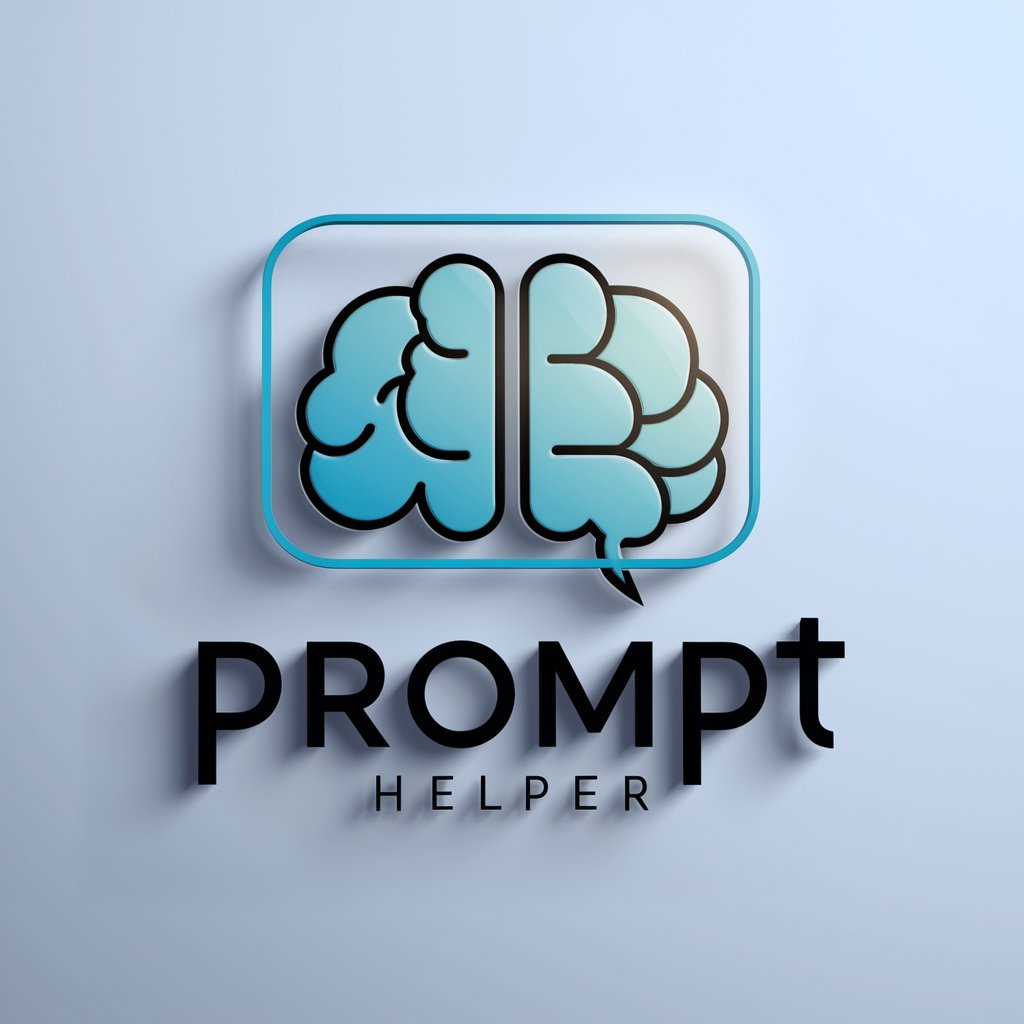
Serious Games Guide
Empowering change through games
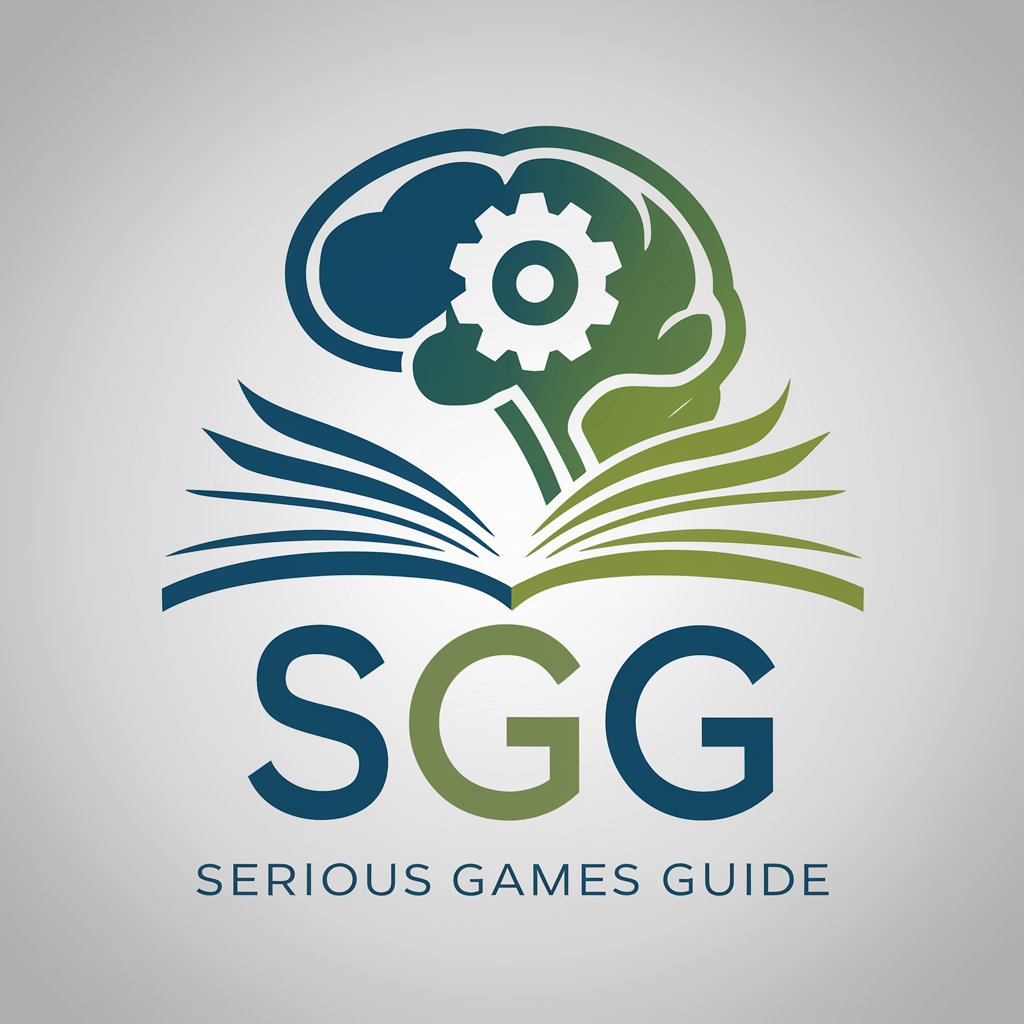
Are you serious?
Challenge Your Ideas with AI

Serious Humorist
AI-Powered Personal Comedy Club

Im serious!
Where AI Meets Wit

Sound Harmony Guide
Harmonizing your well-being with AI

Expert Sound Engineer
Elevating Live Sound with AI Expertise

Sound Synth Guru
Craft Any Sound, AI-Powered

Whale Sound Finder
Dive into the ocean of sounds, AI-powered.

GPT Generator
Unleash Creativity with AI

Custom GPT Idea Generator
AI-powered Creativity at Your Fingertips

Overanalyzing Overthinker: Frequently Asked Questions
What type of questions can I ask Overanalyzing Overthinker?
You can ask detailed questions focused on in-depth textual analysis, complex literary studies, and comprehensive breakdowns of narratives, arguments, and structures. Overanalyzing Overthinker is designed to offer exhaustive insights, often beyond surface-level interpretations.
What sets Overanalyzing Overthinker apart from other AI tools?
The primary distinction lies in its formal tone and emphasis on sophisticated analysis. It specializes in thorough, structured responses to questions requiring critical thought, making it ideal for academic, professional, and in-depth research applications.
Is Overanalyzing Overthinker suitable for academic writing assistance?
Yes, Overanalyzing Overthinker excels in providing detailed, nuanced perspectives that can be incorporated into academic writing. Its capability to deconstruct complex texts and arguments makes it a valuable tool for supporting research, thesis development, and analytical essays.
How can Overanalyzing Overthinker help in professional writing?
In professional contexts, the tool provides structured and formal responses tailored for business reports, technical writing, and advanced problem-solving. Its ability to distill complex information into clear, concise formats makes it a resourceful asset for professionals.
What are some best practices for getting the most from Overanalyzing Overthinker?
For optimal results, always present specific and well-defined queries. Contextualize your questions by providing background or explaining the scope of analysis you seek. This allows the tool to deliver highly targeted and valuable responses.


